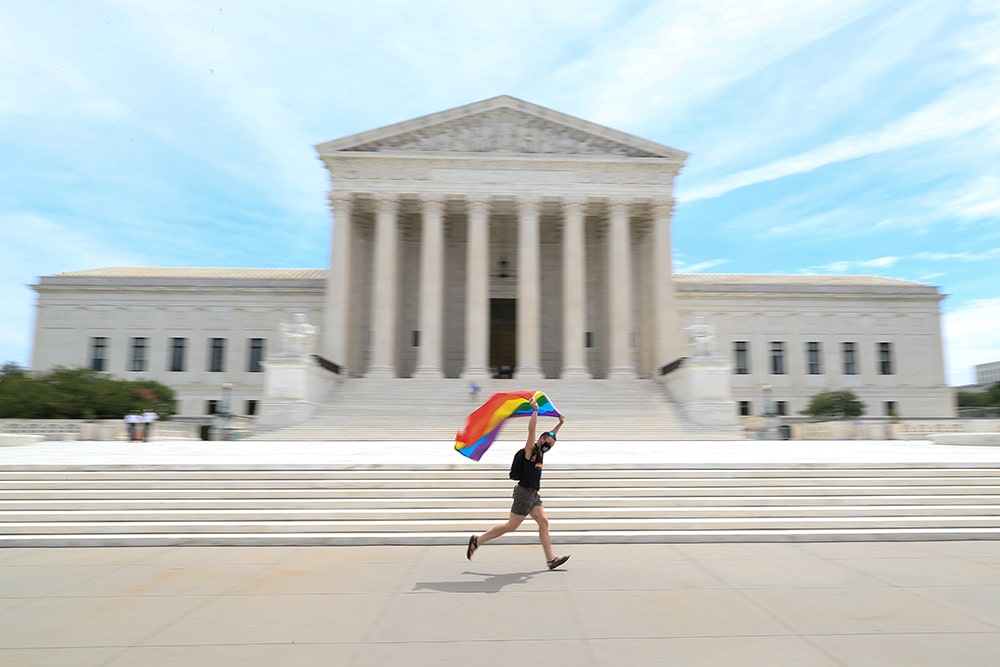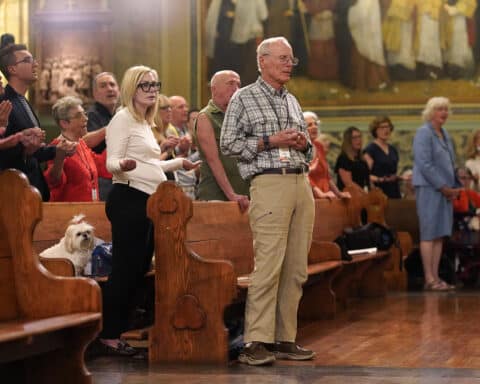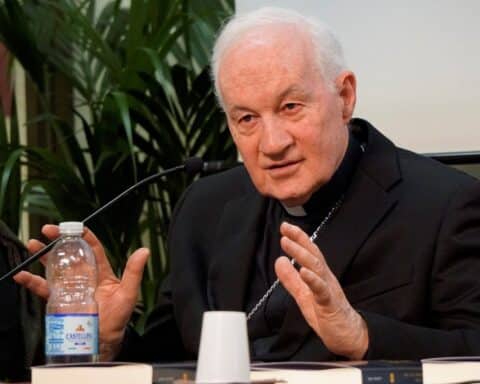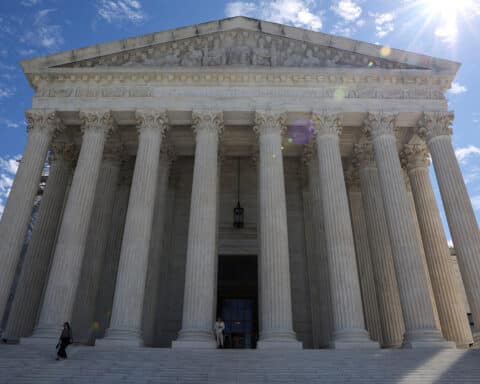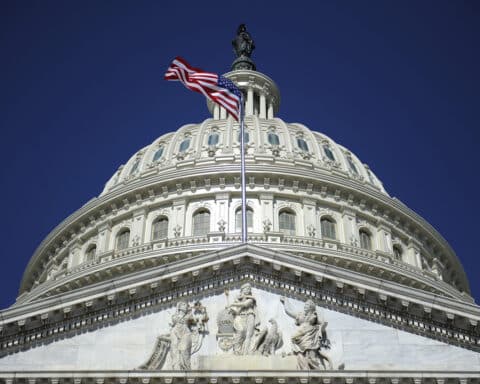The U.S. Supreme Court’s ruling this week that the LGBTQ community is a protected class under the Civil Rights Act of 1964 will have implications for religious employers that federal courts will be dealing with for years to come, constitutional scholars said.
“Religious employers moving forward will carry a burden to show a particular employee is a minister,” Scott Idleman, a constitutional law scholar at Marquette University, told Our Sunday Visitor hours after the high court’s ruling Monday.
In its 6-3 decision, the court said discrimination on the basis of sexual orientation and gender identity is illegal under Title VII of the landmark federal civil rights law. The court heard oral arguments last fall in two consolidated cases where gay employees were fired and another case where a transgender person sued for discrimination after being fired.
“An employer who fires an individual for being homosexual or transgender fires that person for traits or actions it would not have questioned in members of a different sex,” Justice Neil Gorsuch wrote in the majority opinion.
The ruling left open the question of what the new federal anti-discrimination standard will ultimately mean for Catholic dioceses, parishes, hospitals, schools and other religious institutions. Gorsuch himself wrote that how the legal doctrines that protect religious liberty in the United States interact with Title VII “are questions for future cases.”
Richard Garnett, a law professor and director of the University of Notre Dame’s Program on Church, State & Society, told Our Sunday Visitor that the court’s “reinterpretation of Title VII means that there will be more occasions of tension between traditional religious institutions and individuals’ positions and federal antidiscrimination law.”
Said Garnett, “And, this interpretation will probably not be limited to Title VII.”
The next religious liberty case that the high court decides may indeed have ramifications for a religious employer’s ability to hire employees who reflect their institution’s religious beliefs and moral and ethical codes of conduct.
Sometime in the coming weeks, the Supreme Court is expected to issue a decision in the consolidated case of two Catholic schools in the Archdiocese of Los Angeles where teachers allege they were fired for discriminatory reasons.
Lawyers representing Our Lady of Guadalupe School and St. James Catholic School in Los Angeles have argued that the “ministerial exception” in federal employment law that allows churches and religious institutions to employ ministers and pastoral leaders of their own choosing applies to the Catholic school teachers, whose lawyers have argued that such an application is too broad and could impact employees whose jobs are not inherently religious, such as a nurse who works at a Catholic hospital.
“The broader the notion of who is a minister, the more people can be included in the exemption, and the more latitude the religious employer has in relation to those employees,” said Idleman, who added that “much will hinge” on how the court decides the Catholic schools cases.
“Absent the ministerial exception, there’s nothing in (Monday’s) ruling to suggest that Catholic and religious employers will get any kind of exemption, just as they can’t otherwise commit what we traditionally thought of as sex discrimination or race discrimination,” Idleman said.
In a 2012 unanimous decision in Hosanna-Tabor Lutheran Church v. EEOC, the Supreme Court cited the ministerial exception in ruling against a wrongful dismissal lawsuit filed by a Lutheran school teacher who was also an ordained minister. However, the court’s landmark ruling did not provide a standard for who qualifies under the ministerial exception.
Douglas Laycock, a law professor at the University of Virginia Law School who studies and writes about religious liberty cases, told Our Sunday Visitor that this week’s Title VII ruling “doesn’t tell us anything” about the pending ministerial exception cases.
“As the Court notes at the very end of its opinion, there are many religious liberty issues remaining to be litigated — more than it mentions,” said Laycock, who added that religious employers could still cite protections under the First Amendment’s Free Exercise Clause, the religious-employer exemption in Title VII, or the federal Religious Freedom Restoration Act, which protects religious liberties from federal laws that do not advance compelling government interests in the least restrictive way possible.
“Title VII says a religious institution can hire people of a particular religion,” Laycock said. “That has been sensibly interpreted to permit hiring on the basis of religion more generally. A Baptist institution that hires Methodists does not forfeit its right to refuse to hire outspoken atheists.”
At issue in the lower courts has been whether Title VII’s exemption refers to an employee’s self-proclaimed religious identity or whether the religious employer can insist on some basic level of adherence to that particular faith tradition.
“If I say I’m Catholic, can the employer say that because I’m in a same-sex marriage and I’m moonlighting in an abortion clinic, I am obviously not a real Catholic?” said Laycock. “That issue now becomes much more important.”
Garnett, of the University of Notre Dame, said the Title VII decision raises three important questions for Catholics to monitor: “First, how will the religious exemption in Title VII itself be interpreted and applied? Second, how broad will the ministerial exemption be? And third, will the Religious Freedom Restoration Act be interpreted and applied broadly or narrowly in antidiscrimination cases?”
Brian Fraga is a contributing editor for Our Sunday Visitor.

